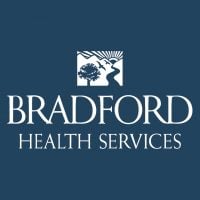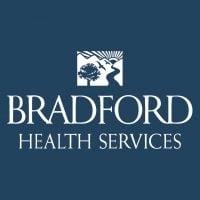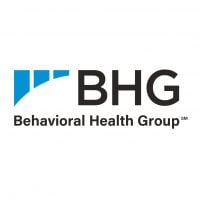
Cherokee County Alcoholism
Drug Rehab Center in Centre, Alabama
- Substance Abuse
- Opioid Addiction
- Drug Addiction
- Alcoholism
Cherokee County Alcoholism in Centre, Alabama is a treatment facility that offers various services and treatment methods to support individuals struggling with alcoholism, opioid addiction, substance abuse, and drug addiction, including aftercare support, drug rehab programs, and outpatient levels of care, in a peaceful and welcoming environment.
About Cherokee County Alcoholism in Alabama
Cherokee County Alcoholism is a treatment facility in Centre, Alabama that specializes in helping individuals struggling with alcoholism, opioid addiction, substance abuse, and drug addiction. With a mission to provide effective treatment and support for those seeking to get sober, Cherokee County Alcoholism offers a range of services to address addiction issues. These services include aftercare support, drug rehab, and outpatient levels of care. Located in a peaceful and welcoming environment, the facility aims to assist individuals in their journey towards recovery by providing comprehensive treatment options tailored to their specific needs.
At Cherokee County Alcoholism, individuals dealing with alcoholism, opioid addiction, substance abuse, or drug addiction can find various services and treatment methods to support their recovery. The facility offers aftercare support, helping individuals transition back into their daily lives after completing their initial treatment. Additionally, they provide drug rehab programs that utilize evidence-based approaches and holistic therapies to address the underlying causes of addiction. These treatment methods are designed to promote physical, emotional, and psychological healing. Cherokee County Alcoholism also offers outpatient levels of care, allowing individuals to receive treatment while living at home and maintaining their daily responsibilities. By offering a diverse range of services, they aim to support individuals throughout their recovery journey and help them build a solid foundation for a sober and healthier lifestyle.
Genders
Ages
Modality
Additional
Conditions and Issues Treated
It’s not easy getting sober on one’s own, or even going to rehab and escaping the grasp of addiction by oneself. Substance abuse treatment gives addicts a place to stay sober while learning what it takes to quit for good. They will learn from others about what works and what doesn’t work with remaining drug-free.
Treatment centers such as Cherokee County Alcoholism focus on the needs of individual addicts to heal them. There is a combination of physical and mental therapies that treat the root cause of the addiction, whether it be family problems, stress, or past traumatic events.
The final benefit of substance abuse treatment is introducing new people who can help in your recovery after you leave Cherokee County Alcoholism. Through group therapy sessions with other addicts and attending support meetings once a day, a person will learn how to interact with others and cope with cravings. This is a chance for you to rebuild your social circle healthily after you leave treatment.
Opioid addiction starts when a person becomes addicted to legal or illegal opioids. The addiction can happen quickly, in just a matter of days. Opioid withdrawal can be extremely uncomfortable and lead the user to continue to use even if they want to quit. Stopping using an opioid requires medical observation. Sometimes inpatient treatment with a medically supervised detox is necessary for managing the withdrawal process while learning lasting tools for maintaining recovery. Medications may be used in some cases of opioid addiction.
Opioid addiction is one of Alabama‘s most prominent forms of addiction. It’s treated by detoxifying the body so that the chemicals from the medications no longer impact them and by therapies to correct behavior and target the root of the problem.
Levels of Care Offered
This center offers a variety of custom treatment tailored to individual recovery. Currently available are Aftercare Support, Drug Rehab, Outpatient, with additional therapies available as listed below.
Outpatient treatment is considered the lower intensity level of addiction treatment. It’s ideal for early phase addiction or lower intensity addictions. It may include weekly sessions instead of daily. It may include weekly sessions instead of daily. Peer group support, 12-step programs, and individual counseling may still be involved but at a lesser frequency than an intensive outpatient program. It is a good choice for someone who doesn’t need to go through a medically supervised detox and who has a supportive home environment. It requires motivation and dedication to commit to the program without constant monitoring.
Aftercare support should take place after outpatient treatment has ended. There are a few different types of aftercare support that patients can seek. These include 12 Step, Self-help groups (AA, NA), Therapeutic communities, Long-term, structured sober living arrangements, and Halfway houses (residential treatment centers).
Therapies & Programs
Individual therapy involves one-on-one sessions between the patient and therapist. It provides patients with a safe environment to openly discuss personal and sensitive issues with the therapist. They find the therapist as someone they can trust. Individual therapy aims to identify the core issues that would have led the patient to substance abuse and address them effectively. The therapist can develop patient-specific customized solutions through individual therapy, which aids speedier recovery.
Couples therapy works with clients and significant others in a professional capacity to improve relationship dynamics. This can be helpful for addicts who are trying to marry the idea of recovery into their work, family, social lives – any aspect that has to do with relationships.
Through counseling sessions, addicts will have an opportunity to talk about their addiction with professional partners. These partners can offer feedback and advice on how to get sober while keeping healthy relationships intact. A good couples therapist will help addicts understand their part in an unhealthy relationship dynamic or find ways to deal with anger or resentment from significant others outside of the home.
Family therapy is a group problem-solving that aims to improve communication and relationships between the addict, their family, and sometimes friends. The main goal of family therapy for drug addiction is to create an environment where communication can occur without judgment, hostility, or blame. The therapist is with the family as they learn to communicate differently, especially with the addict when s/he is using. The family can learn to reduce their enabling behavior or rally together and support each other during tough times.
An addict’s family can play a vital part in helping them to avoid relapse because they can spot the warning signs and help them get back on track before it becomes too much of a problem. Family therapy is one of the most effective ways to help addicts stay on the path to long-term sobriety. When a drug addict decides that they want to try and get sober, it takes the support of every person they love to succeed. It can be incredibly difficult for loved ones to watch an addict go through the pain and suffering of withdrawal, but by being there with them and supporting them, they can help to make sure that the addiction never returns.
Groups typically involve meetings with other recovering addicts who can relate to one another’s experiences. They might meet in person or online and typically focus on the process of staying sober rather than overcoming a specific addiction.
In these groups managed by Cherokee County Alcoholism, addicts can build a sense of community and develop strong emotional connections with others who understand what they are going through. These beneficial relationships can help addicts overcome their cravings and prevent relapse at any point during the recovery process.
Additional Details
Specifics, location, and helpful extra information.
Centre, Alabama 35960 Phone Number(256) 927-3111 Meta DetailsUpdated November 25, 2023
Staff Verified
Cherokee County Alcoholism Patient Reviews
There are no reviews yet. Be the first one to write one.
Centre, Alabama Addiction Information
Opioids, such as heroin, fentanyl, and prescription opioids are related to more than half of all drug-related overdoses in Alabama. Alcohol is the most frequently used substance in Alabama; 85,000 Alabamians use cocaine every single year. In Alabama, there are four times as many vehicle crashes involving alcohol as there are normal vehicle crashes.
The rates of drug abuse and addiction in Centre are increasing every year. In 2017, there were a total of 892 drug-related ER visits in Cherokee County. There are many different types of drug treatment available in Centre, Alabama. Some of the most common types of treatment include inpatient and outpatient treatment.
Treatment in Nearby Cities
- Russellville, AL (119.6 mi.)
- Grand Bay, AL (298.0 mi.)
- Demopolis, AL (168.2 mi.)
- Boaz, AL (27.3 mi.)
- Daphne, AL (277.6 mi.)
Centers near Cherokee County Alcoholism



The facility name, logo and brand are the property and registered trademarks of Cherokee County Alcoholism, and are being used for identification and informational purposes only. Use of these names, logos and brands shall not imply endorsement. RehabNow.org is not affiliated with or sponsored by Cherokee County Alcoholism.




